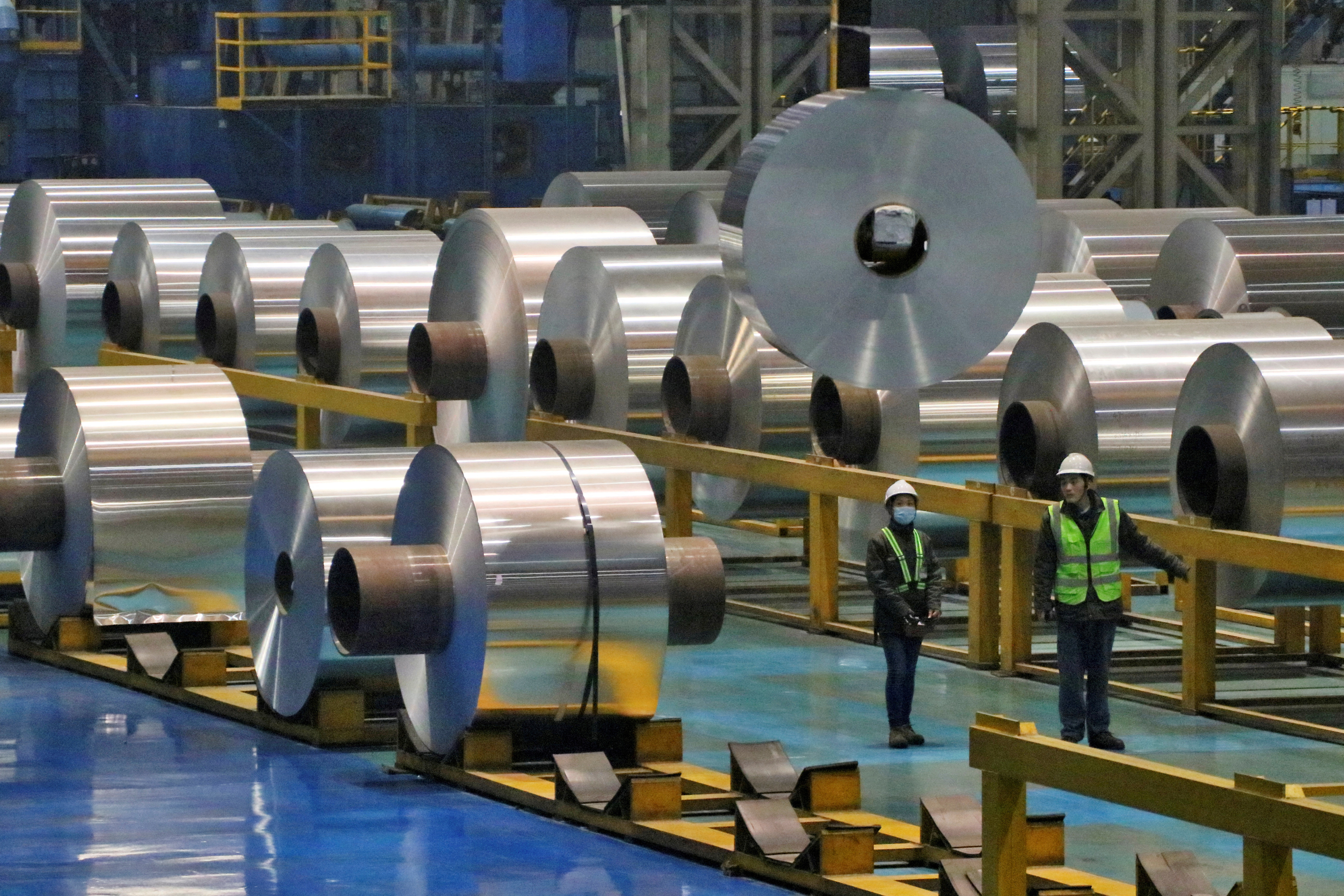
Employees work on an aluminum coil production line at a factory in Zhuming, Shandong Province, China on November 23, 2019. Photo taken on November 23, 2019. Photograph: Reuters Obtaining licensing rights
TOKYO (Reuters) – Manufacturers in Asia faced mounting pressure in October as factory activity in China fell again, casting a cloud on recovery prospects for the region’s major exporters already under pressure from weak global demand and rising prices.
Purchasing managers’ indexes for factory forces in China, Japan and South Korea showed activity contracting while Vietnam and Malaysia also suffered the growing fallout from China’s slowdown.
China’s Caixin/S&P Global manufacturing PMI fell to 49.5 in October from 50.6 in September, falling below the 50.0-point threshold that separates growth from contraction, a private sector survey showed on Wednesday.
China’s survey echoed a downbeat official reading of the Purchasing Managers’ Index on Tuesday, which also showed an unexpected contraction in activity, casting doubt on recent hopes for a rebound in the world’s second-largest economy.
“In general, manufacturers were not in high spirits in October,” Wang Zhe, an economist at Caixin Insight Group, said about the survey results in China.
“The economy has shown signs of bottoming out, but the foundation for recovery is not solid. Demand is weak, many internal and external uncertainties remain, and the outlook remains relatively weak.”
The impact of China’s slowdown is being felt in countries like Japan and South Korea, whose manufacturers rely heavily on demand from the Asian giant.
The final PMI released by Jibun Bank showed that factory activity in Japan contracted for the fifth straight month in October.
This came a day after official figures showed Japanese factory production rising much less than expected in September, with demand slowing noticeably.
Japanese machinery makers such as Fanuc (6954.T) and Murata Manufacturing (6981.T) recently reported weak six-month earnings due to slowing Chinese demand.
Factory activity in South Korea fell for the 16th straight month, while purchasing managers’ indexes from Taiwan, Vietnam and Malaysia also showed a continued decline in activity.
India’s factory activity growth also slowed for the second straight month in October, as weak demand and higher costs of raw materials weighed on business confidence.
“October PMIs in emerging Asia generally fell within contraction territory,” said Shivan Tandon, emerging Asia economist at Capital Economics.
“The near-term outlook for manufacturing in the region remains bleak as high inventory levels and weak foreign demand are expected to curtail production.”
The International Monetary Fund warned that a weak recovery in China and the risk of a prolonged real estate crisis could worsen economic prospects in Asia.
In its World Economic Outlook report issued last month, the International Monetary Fund lowered its estimate for growth in Asia next year to 4.2% from 4.4% expected in April, and down from its forecast of 4.6% for this year.
Reporting by Leika Kihara. Edited by Sam Holmes
Our standards: Thomson Reuters Trust Principles.

“Beer aficionado. Gamer. Alcohol fanatic. Evil food trailblazer. Avid bacon maven.”
